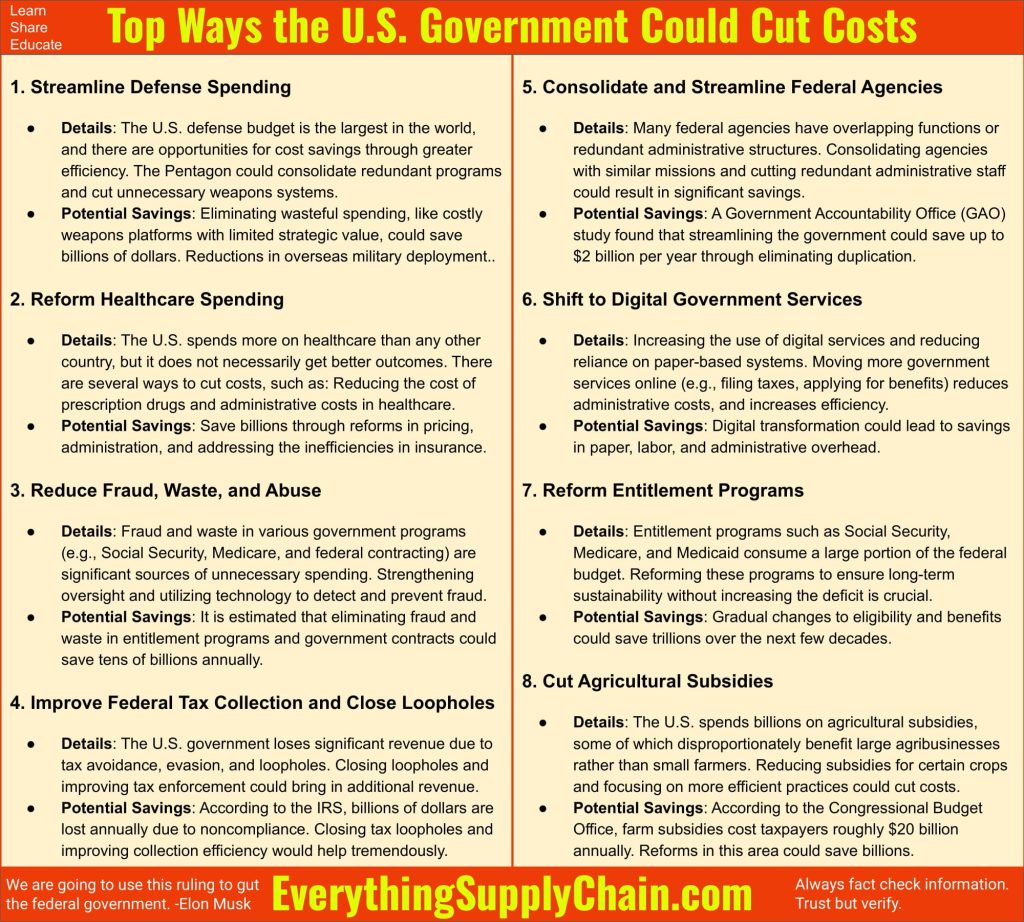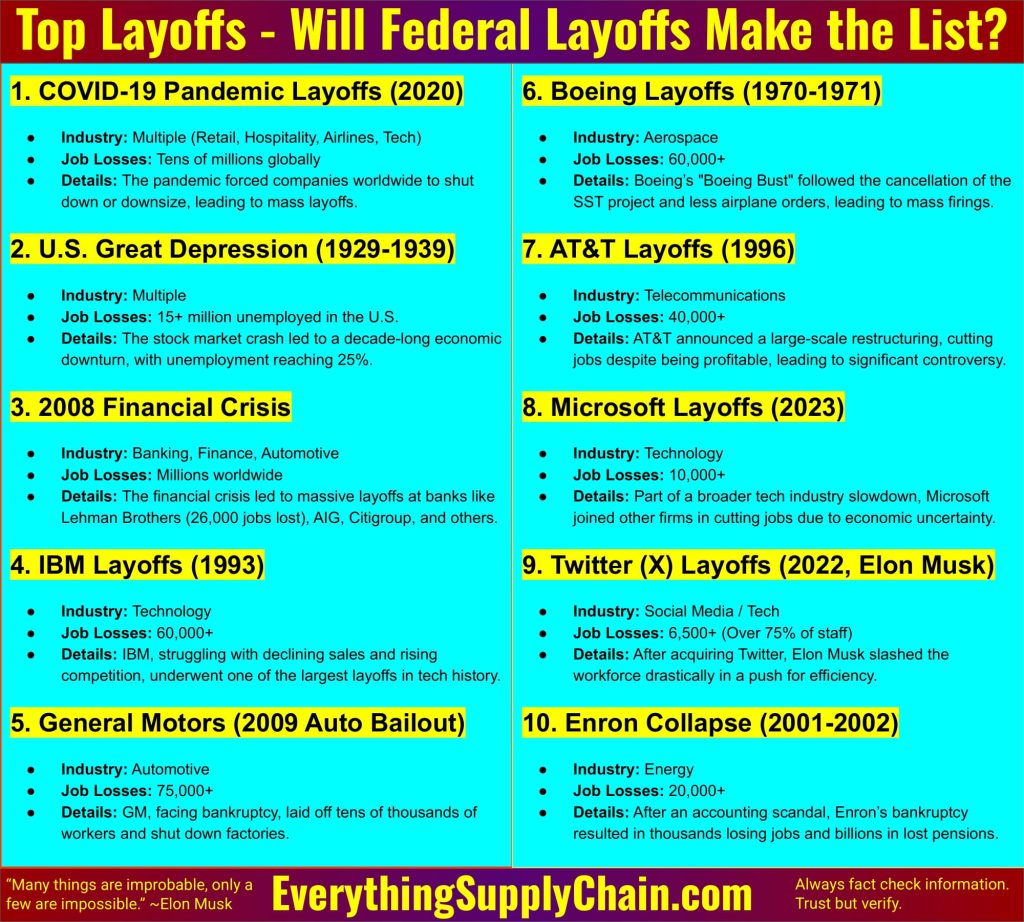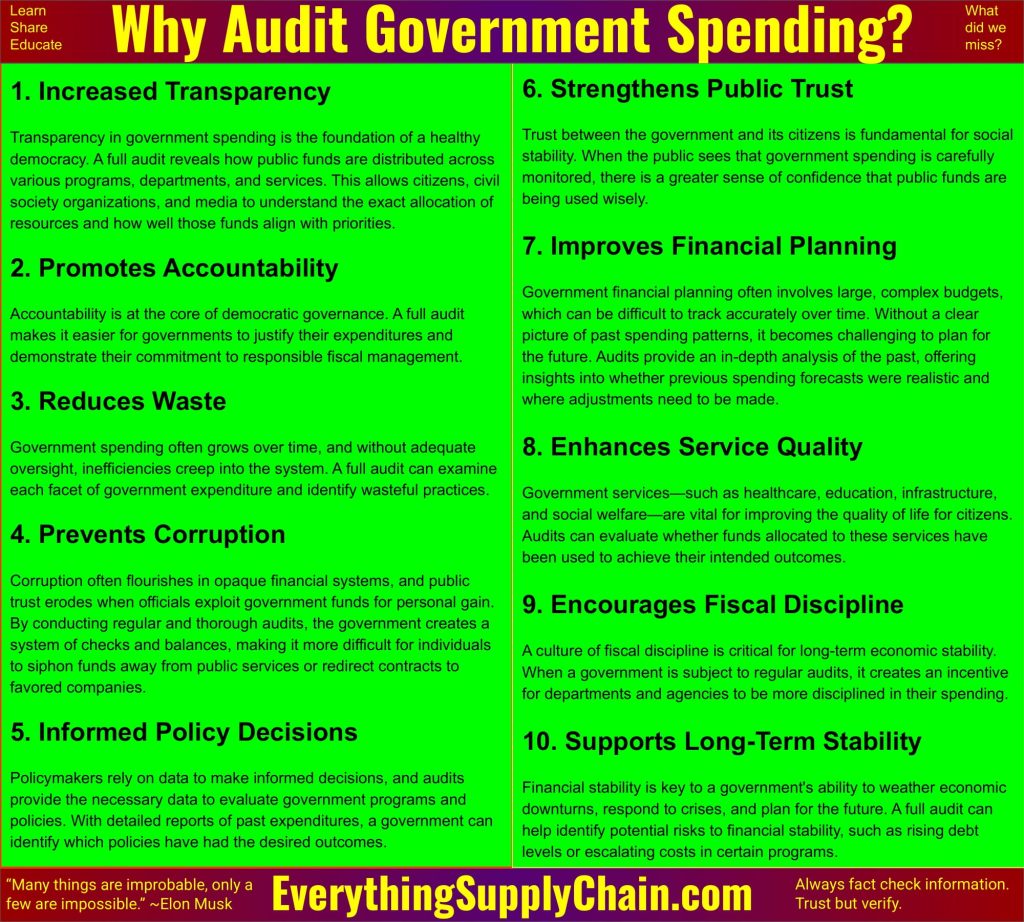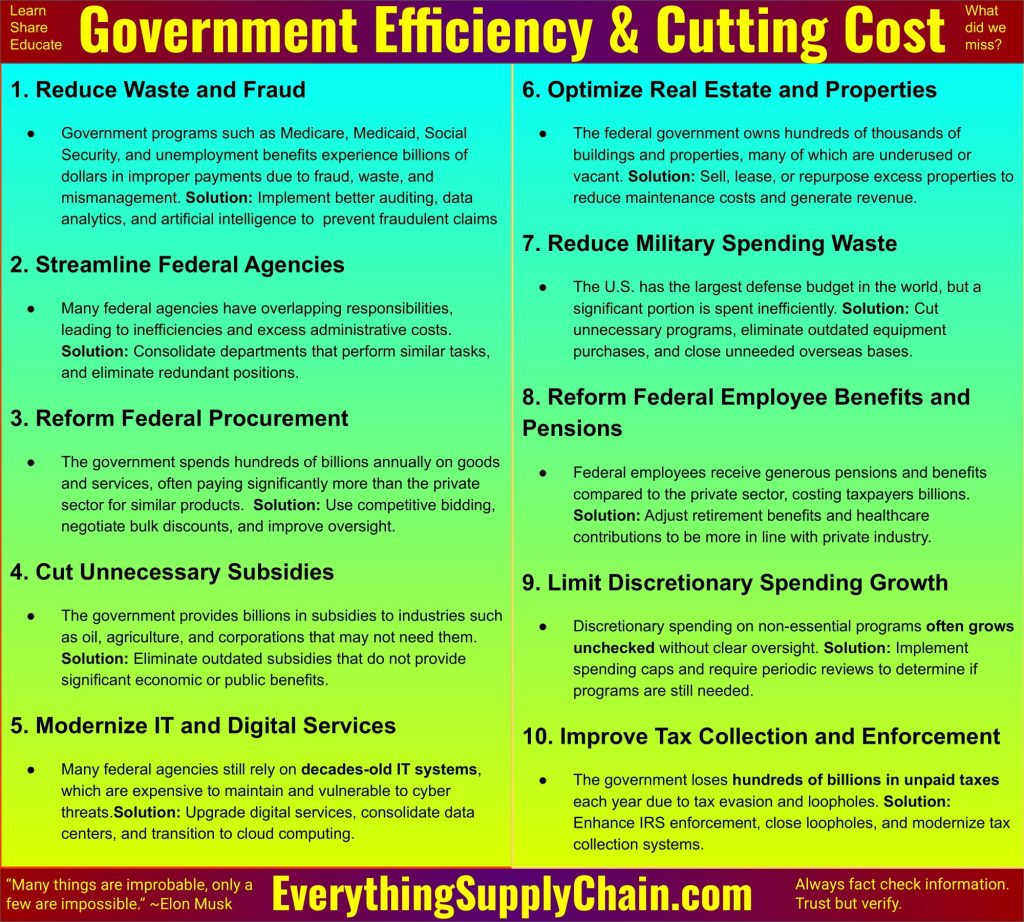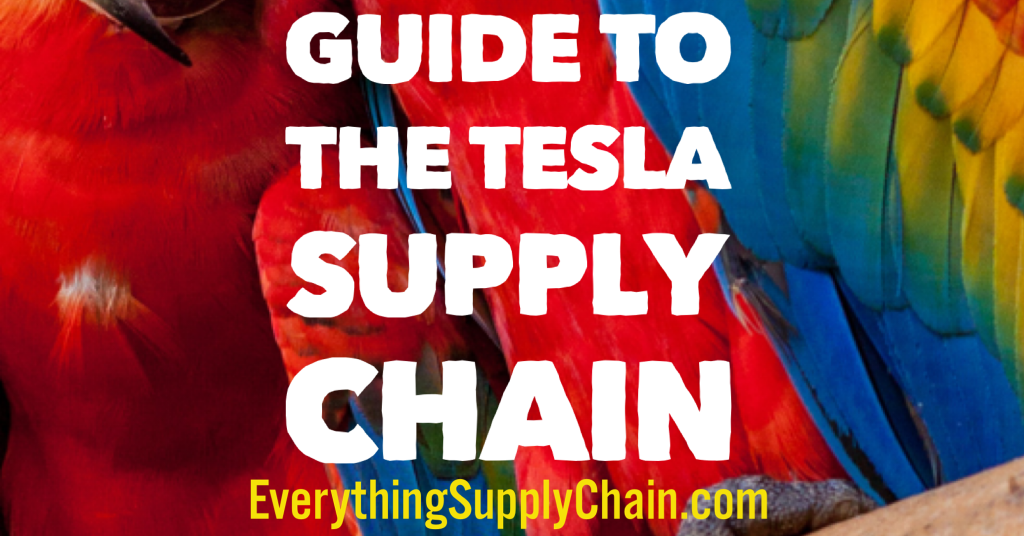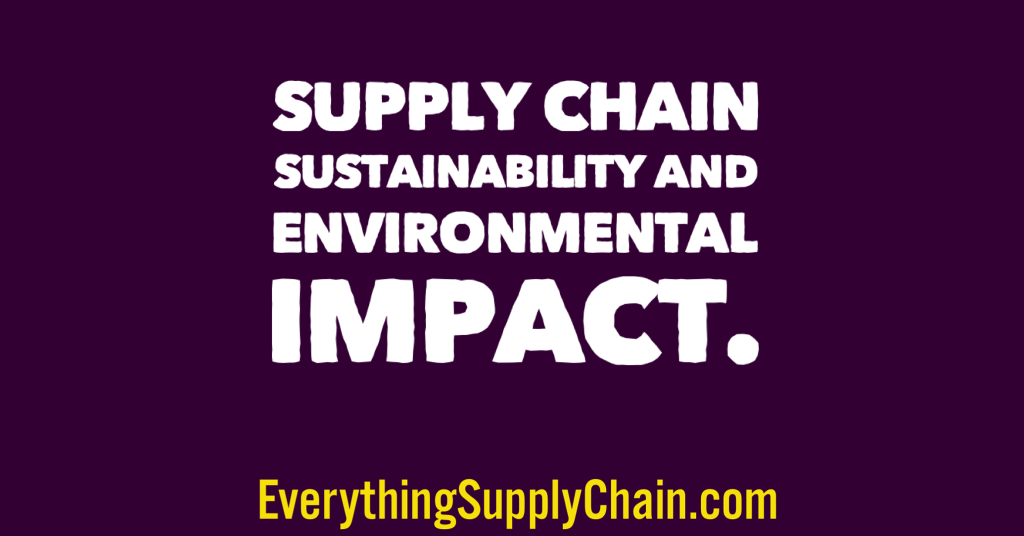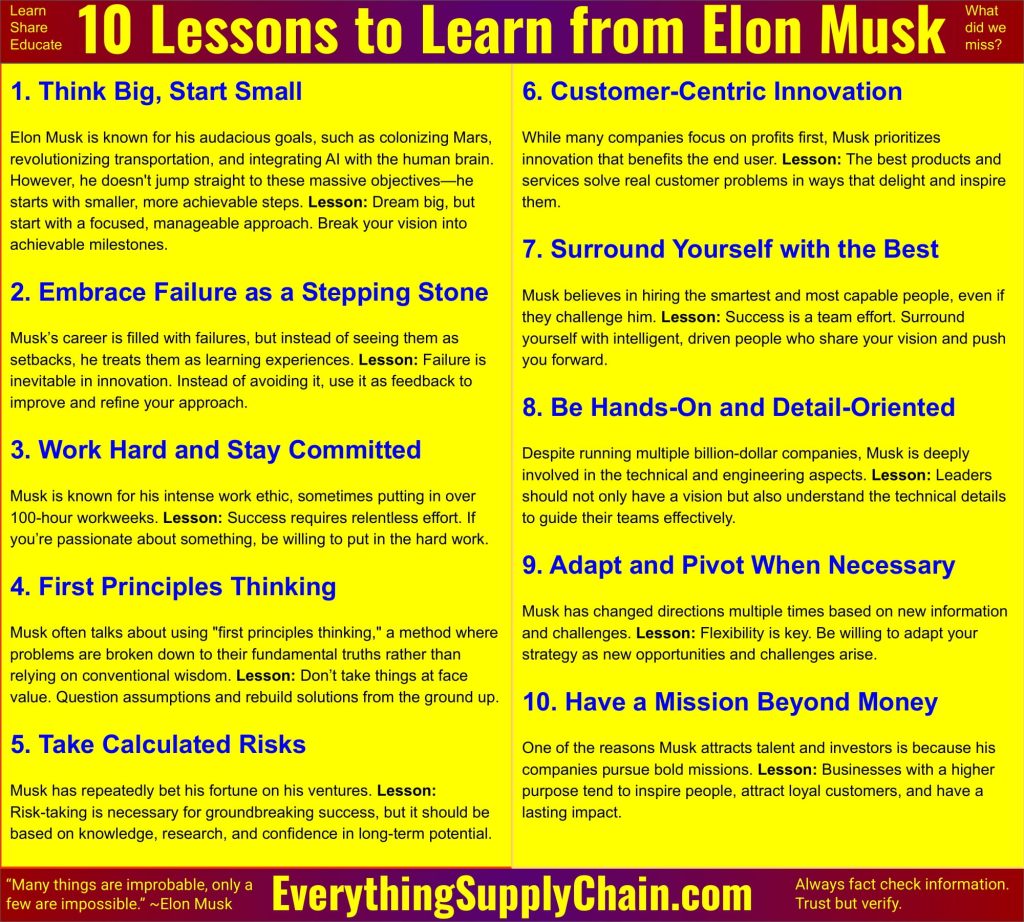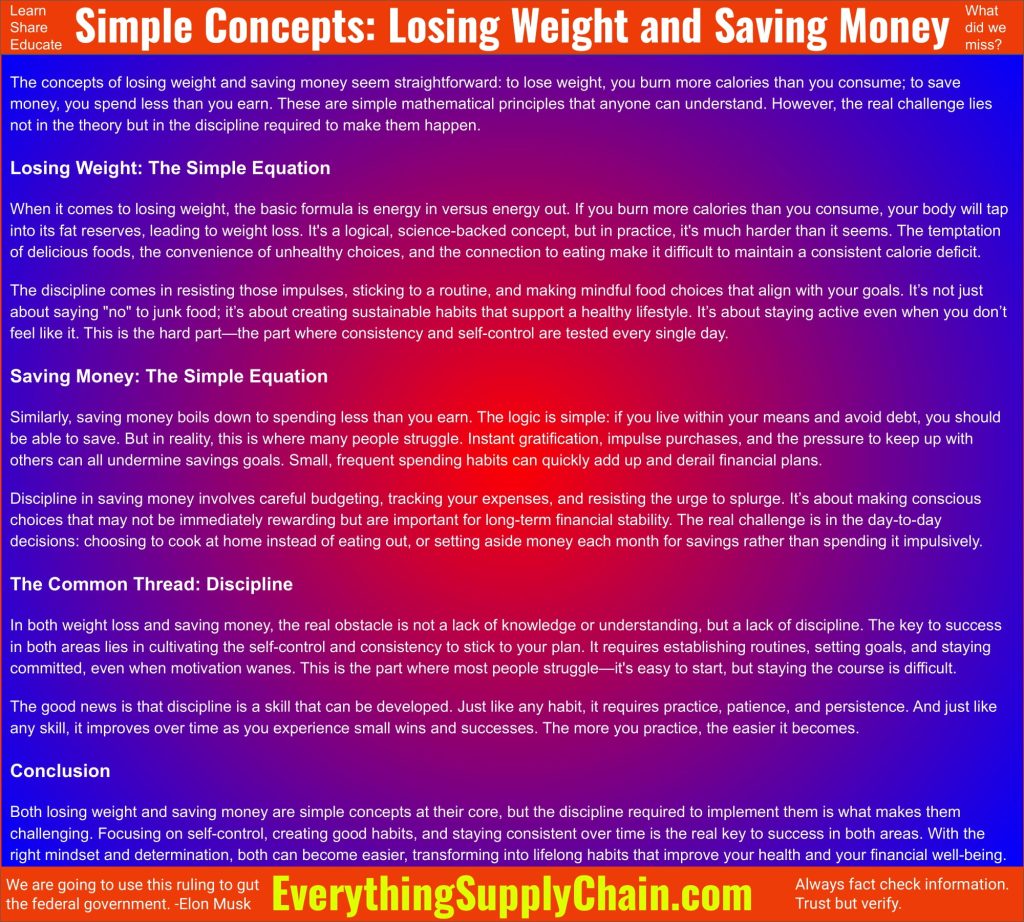Department of Government Efficiency (DOGE): Elon Musk. Good or bad?
Elon Musk has voiced strong opinions about improving government efficiency. His approach to this idea reflects his belief in reducing bureaucratic inefficiencies and promoting a more streamlined, private-sector-driven model for addressing societal and business needs. Here are the main points of Musk’s plan to slash government agencies or minimize government intervention:
1. Reducing Regulatory Burdens
Musk has often expressed frustration with what he perceives as overly burdensome regulations. At Tesla, for example, he has criticized safety regulations, permitting delays, and red tape that he argues slow down innovation and delay progress. His vision is to streamline regulations to make it easier for businesses, particularly in the tech and automotive sectors, to innovate quickly without being held back by outdated or excessive government oversight.
- Example: Musk has often pointed to the difficulties Tesla faced in getting regulatory approval to build new manufacturing facilities or sell electric vehicles in certain markets. His stance is that excessive regulations can be stifling and hinder technological advancements.
2. Privatization and Competition with Government Programs
Musk has suggested that many functions handled by government agencies could be more efficiently run by the private sector. In his view, private companies are often more nimble, innovative, and cost-effective than large government agencies. He has argued that government should focus more on creating a conducive environment for businesses to thrive, rather than directly managing industries.
- Example: Musk’s work with SpaceX reflects this approach, where he has disrupted the space industry traditionally dominated by government agencies like NASA. SpaceX, a private company, has managed to provide space services (including launching satellites and resupplying the International Space Station) at a fraction of the cost that government-run space agencies were incurring.
3. Scaling Back on Government Oversight
Musk has also indicated that government oversight can be excessive, especially in industries like tech and energy. He has suggested that the government should step back and allow companies like Tesla to drive the transition to renewable energy and electric vehicles without the constant interference of regulators. For instance, he has opposed certain environmental regulations he believes stifle innovation in the electric vehicle (EV) and energy industries.
- Example: Musk has critiqued government incentives for renewable energy projects and subsidies that he believes distort the free market. Instead, he advocates for a level playing field where technological advancements are driven by market forces, rather than government mandates.
4. Cutting Public Sector Jobs
In line with his broader philosophy of reducing government size, Musk has made comments about slashing government jobs or cutting public sector spending. His argument is that public sector jobs can often be inefficient and less productive than those in the private sector. He envisions a world where the government is more focused on its core responsibilities—such as national defense, law enforcement, and infrastructure—rather than running industries.
- Example: At Twitter (now X), Musk has implemented significant layoffs, including many employees involved in moderation, content policy, and administrative roles. While this is more focused on Twitter’s internal structure, it reflects his broader belief that organizations, both public and private, can often operate more efficiently with a smaller, more focused workforce.
5. Minimal Government Involvement in Market-Driven Solutions
Musk advocates for minimal government involvement in areas where market-driven solutions can take over. He believes that innovation in sectors like transportation, space exploration, and energy should not require heavy government subsidies or control. By cutting government agencies that manage or regulate these sectors, Musk believes market competition would drive better and faster solutions.
- Example: Musk’s desire to make space travel more commercial is embodied by SpaceX’s mission to make human spaceflight more affordable and accessible without reliance on government funding. He has suggested that NASA could become more of a client of private companies rather than a producer of space technology.
6. A Focus on Automation
Musk is also a proponent of automation and artificial intelligence, both of which he believes can reduce the need for government programs and services in certain areas. For example, automation in industries like transportation could reduce the need for subsidies or regulatory agencies overseeing worker safety and labor markets in the traditional sense.
- Example: Tesla’s push toward fully autonomous vehicles is seen as a way to reduce reliance on government regulation of drivers and the transportation industry. Musk has argued that, in the long run, automated vehicles could make road safety regulations and human-driven traffic laws less necessary.
7. Philosophical Belief in Less Government
Musk has, on multiple occasions, made philosophical statements advocating for reduced government control over individuals’ lives. His libertarian-leaning perspective suggests that government intervention should be limited to essential areas, such as maintaining the rule of law, defense, and protection of private property.
Conclusion
Elon Musk’s approach to slashing government agencies reflects his broader vision of a more market-driven society with less regulation and more private-sector innovation. He advocates for reducing bureaucratic inefficiency and believes that companies should be free to operate without excessive government oversight. While these ideas have generated significant debate, Musk’s track record of disrupting industries through private enterprise shows how his thinking might influence future conversations about government’s role in the economy and society. We will have to wait and see what continuous improvement tools will be used by Elon Musk to improvement government efficiency?
Efficiency and Improvement Quotes
- “I think that’s the single best piece of advice: constantly think about how you could be doing things better and questioning yourself.” ~Elon Musk
- “If a company isn’t continuously improving then it is slowly dying.” ~Dave Waters
- “It’s hard to beat a person who never gives up.” ~Babe Ruth
- “It is more than probable that the average man could, with no injury to his health, increase his efficiency fifty percent.” ~Walter Scott
- “Government efficiency is an oxymoron. Not sure where I originally heard that but can visit many government agencies and see it for yourself.” ~Dave Waters
- “Efficiency is doing things right. Effectiveness is doing the right things.” ~Peter Drucker
- “Take risks now. Do something bold. You won’t regret it.” ~Elon Musk
- “The laziest people find the most efficient way to do things; they don’t just do nothing, because then they have to end up being bothered into doing things all the time anyway.” ~Shikamaru
- “There may be people that have more talent than you, but there’s no excuse for anyone to work harder than you do.” ~Derek Jeter.
Continuous Improvement Resources
- Collection of Continuous Improvement Resources.
- Elon Musk and First Principles Thinking.
- First Principles: Elon Musk Method of Thinking.
- History of Continuous Improvement and Lean Manufacturing.
- Process Improvement Quotes and Blogs.
- Process Improvement: Six Sigma & Kaizen Methodologies.
- Top 10 Continuous Improvement Methods.
